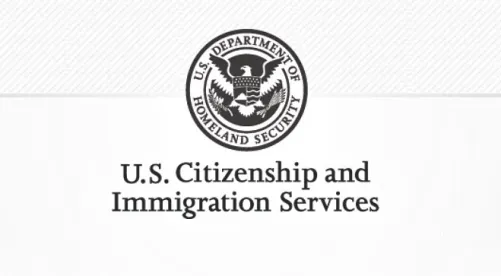A new rule, “Implementation of the Emergency Stopgap USCIS Stabilization Act,” published in the Federal Register on March 30, 2022, will open the popular USCIS “premium processing” service to new categories of immigration filings that are currently subject to extraordinarily long backlogs. USCIS will roll out the expansions in stages.
Stage 1 of Premium Processing Expansion – Form I-140 – Fiscal Year 2022: Initially, USCIS will offer enhanced processing for Form I-140 green card petitions in the following new categories:
-
EB-1 Multinational Executive/Manager
-
EB-2 National Interest Waiver
These petitioners will pay the standard $2,500 premium fee, but USCIS will have three times longer to adjudicate the petitions than the standard premium timeframe: 45 calendar days, instead of 15. Despite the increased timing, the premium service is expected to be well received and heavily used in these categories, as these I-140 petitions currently take up to 15 months to be processed at the Nebraska Service Center and a whopping 48 months at the Texas Service Center.
USCIS expects premium service to open for these categories during Fiscal Year 2022; in other words, before October 1, 2022.
Stage 2 of Premium Processing Expansion – Certain Forms I-539 and I-765 – Fiscal Year 2022: Next, and still within FY 2022, USCIS will expand the premium service to very limited subcategories of applicants who file Form I‑539 and Form I-765.
The following subcategories of Form I-539 Application To Extend/Change Nonimmigrant Status will be eligible for premium processing during this stage:
-
Change of status to F-1, F-2, J-1, J-2, M-1, or M-2
These applicants will pay a premium fee of $1,750 for 30-day processing.
Those who file Form I-765 Application for Employment Authorization in the following subcategories will also be eligible for premium processing in Stage 2:
-
F-1 students applying for employment authorization under Optional Practical Training
-
J-2 spouses and minor children of J-1 Exchange Visitors
These Form I-765 applicants will pay a premium fee of $1,500 for processing within 30 calendar days.
Stage 3 of Premium Processing Expansion – Additional Forms I-539 and I-765 – Fiscal Year 2025: Finally, using funds generated from the newly eligible premium filings listed above, USCIS will hire and train sufficient staff to open premium processing for additional Form I-539 and I-765 categories and will enhance its online filing system to accept Form I-907 Request for Premium Processing Service.
Additional categories to be rolled out in the final expansion stage include the following:
-
Form I-539 change of status to the following dependent classifications: E-1, E-2, E-3, H-4, L-2, O-3, P-4, and R-2
-
Form I-539 extension of status in the same classifications: E-1, E-2, E-3, H-4, L‑2, O-3, P-4, and R-2
-
Additional, unenumerated subtypes of Form I-765 and Form I-539 filed online and on paper
These new categories will open for premium processing during Fiscal Year 2025; in other words, on or after October 1, 2024.
USCIS estimates that offering all of these enhanced premium services will cost the agency more than $12 million per year to upgrade staffing and training, but will increase annual revenues by more than $700 million.




 />i
/>i


